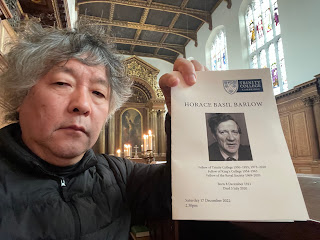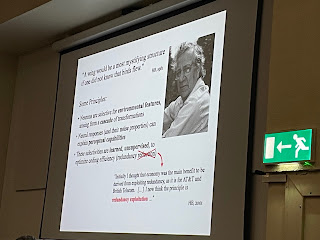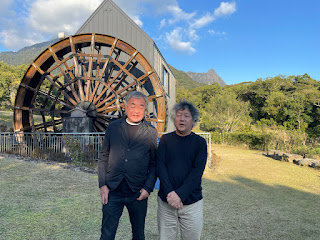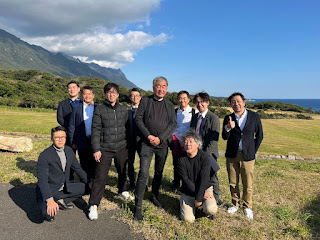I went to the island of Yakushima for a few days. Yakushima, in southern Japan, is rich in pristine nature, and is a UNESCO World Heritage registered site. I went there in my capacity as the headmaster of Yakushima Ozora High School, a correspondence-based institution with the main campus on this island, providing a much valued learning experience for students from all over Japan.
This time, there was something special. The world-renowned architect Kengo Kuma came to see the campus and its surroundings. I came to know Mr. Kuma as a guest of the Professionals program at NHK, where I was the co-host of the show. At that time, I learned that Mr. Kuma would go walkabout, when he visits a site of interest. So when Mr. Kuma started to walk on the school premises, it was as if a confirmation of a long-held view on the habits of the master designer of buildings came to be confirmed.
What Mr. Kuma was capable of, however, was something beyond my imagination. The land in which the Yakushima Ozora High School is situated is rich in vegetation, with threes, shrubs, and weeds rampant, except for, of course, the well-maintained areas in the vicinity of the buildings. Mr. Kuma was like a fireball of curiosity. Wherever he wanted to go, he would go. He was heading the whole group, venturing into the most wild parts of the premises without aid, glancing in this direction and then in another, inspecting how the landscape and the views around would change, with the avid observation of a five-year-old and the mature wisdom of an experienced architect. It was an inspiration and privilege to witness.
Mr. Kuma's family name, "kuma", has the same sound in Japanese as the animal "bear". On that day, Mr. Kuma went walkabout like a wild bear in Yakushima, and it was fascinating to witness the workings of a great mind.
Mr. Kuma and myself in front of a giant watermill in the Senvus Village, an ecological education site attached to the high school.
Mr. Kuma, myself, and the high school staff.








